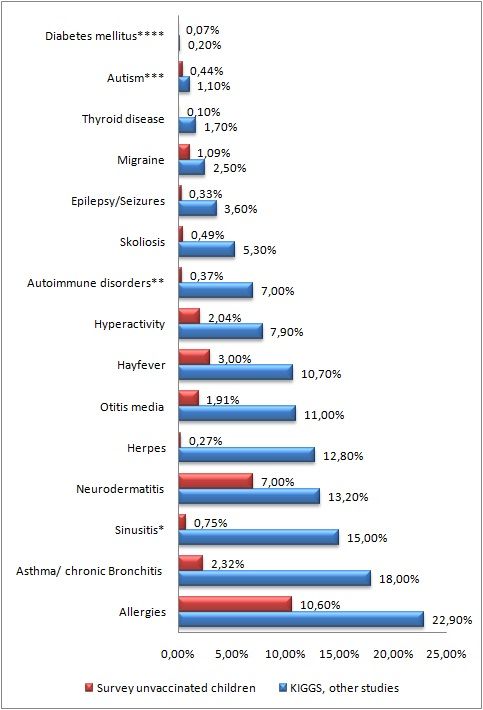Podcast with “Andreessen Horowitz Distinguished Visiting Professor of Computer Science … Fei-Fei Li [who publishes under Li Fei-Fei], associate professor at Stanford University.”
Category: ethics – Page 66
CNN Courageous studio putting on a special conference on human augmentation some transhumanists are part of
This is very new way of media outreach and news. I’m happy to be a part of it. Featuring Deus Ex too.
This summer, CNN’s brand studio Courageous is partnering with Square Enix®, publisher of SQUARE ENIX interactive entertainment products in the Americas, to host a first-of-its-kind conference on human augmentation. Human by Design will be held at the Paley Center for Media in New York City on August 3, 2016, and explore the intersection of technology and humanity with the objective of bringing together top minds to debate, question, and challenge what it means to be human.
Please visit the Human by Design website for access to the conference agenda, bios of the speakers and more information of The Code: www.humanxdesign.com/.
Square Enix is aligning with Human by Design to support the release of Deus Ex: Mankind Divided®, the video game developed by Eidos-Montréal and the sequel to the critically acclaimed Deus Ex: Human Revolution®, on August 23, 2016. Set in the year 2029, Deus Ex: Mankind Divided features a world that has become so divided by hatred, prejudice, and fear that many countries are enacting harsh laws aimed at segregating mechanically augmented humans and “Naturals” from each other. The many parallels of the near-futuristic Deus Ex Universe® will be explored at the conference, particularly around how technology is rapidly shaping the human condition and the ethics of self-regulation.

Do you have a right to view an ISIS Kill List?
According to The Clarion Project, a political information bureau that warns westerners of the growing threat from radical Islam, ISIS has published a ‘kill list’ that includes the names, addresses and emails of 15,000 Americans.
So far, this is interesting news, but it is not really new. I found ISIS, Hezbollah and Al-Qaida kill lists going back at least 8 years. This 2012 bulletin complains that NBC would not release the names contained on a kill list.
A kill list is newsworthy, and the Clarion article is interesting—but the article has more “facts” with which the publisher wishes to generate mob frenzy…
- It explains that 4,000 of the names on the Kill List have been leaked by hackers
- It echos a report by Circa News that the FBI has decided to not inform citizens that they are on the ISIS kill list.
In a clear effort to whip up and direct audience indignation, it asks readers to take a one-question poll. Which answer would you choose?
- I have a right to know if I am on an ISIS kill list
- I do not need to know if my name is on the ISIS kill list.
The FBI can protect me without my knowing
Let’s ignore, for a moment, that the editorial comment appended to answer #2 involves a misleading assumption (i.e. that your safety is related to inclusion on the list and that you need or would be the focus of FBI protection). Even before this cheap tactical mis-direction, I am frustrated with the sleazy promotional and shock tactics of The Clarion Project (formerly, stopradicalislam.org).

This a pity—because the Clarion Project also creates and distributes valuable educational literature. For a few years, they were the credible standard in defining and issuing warnings about the dangers of radical Islam—especially as it is seeded and spread from within. The Clarion Project also produces terrific “wake-up” videos and documentary evidence about life under Sharia law and the shocking intolerance, misogyny and disrespect for human rights that characterize ISIS. It highlights the brutal tactics that emerge when regional governments are controlled by religious zealots. Like any repressive dictatorship, ISIS rules through fear instilled by bands of roaming thugs and by turning everyone into snitches.*
But the Kill List Poll points to a growing trend at Clarion. Four years ago, I objected to Meira Svirsky’s inflammatory report that criticizes a DOJ official for refusing to answer a complex and subtle question with a Yes-or-No response. The Clarion Project has a critical and noble goal. But pushing the emotional hot buttons of an audience by over simplifying or vilifying subtleties undermines the entire organization. In the end, it only demonstrates that they are bullies. And just like Donald Trump, bullying plays only to mobs. It is no the way to win hearts and minds.
My Answer to the Poll
- I do not need to know if my name is on the ISIS kill list
Rationale
Both ISIS leaders and radical clerics have repeatedly declared that *all* Americans, American allies, Jews and non-believers may be killed on the spot or taken as sex slaves to pleasure suicide bombers and Jihadist soldiers.  They state that doing this fulfills Jihad and prophecy and is sanctioned by the Holy Qur’an. With this in mind, I the choice of poll responses is political, selfish and offensive. It assumes that readers are idiots…
They state that doing this fulfills Jihad and prophecy and is sanctioned by the Holy Qur’an. With this in mind, I the choice of poll responses is political, selfish and offensive. It assumes that readers are idiots…
The multiple choice answers are incomplete and misleading. Of course, Americans have a right to know if they are on a kill list—and, in fact, we already know We are all on that list!
About Radical Islam
The warning bell at the heart of Clarion journalism is an alarm that must be heard—very loudly. Radical Islam is a cancer and not just figuratively. It exhibits all earmarks of a spreading cancer that invades and attaches itself to its neighbors while building offensive outposts far from the region that it started. It has not yet been contained and excised. It presents a significant ongoing threat to our safety, our health and our wealth.
—Philip Raymond is a Lifeboat board member and columnist. He hosted The
Bitcoin Event and is co-chair of the Cryptocurrency Standards Association
* I could illustrate my point with photos of men being burned in a cage, the abduction of preteen school girls from their homes (they were give to soldiers), a child slitting the throat of captives, or a women having her nose cut off because she was raped by a stranger. After all, in the twisted world of radical Islam, anyone who is different, unique gay, Christian, or not in agreement with the local Imam are to be tortured and killed.
But I can similarly point to even this comparatively mild video. It shows a Turkish music store under attack last week (June 2016), because a group of thugs suspects that the band signing autographs represents secular hedonism—or that that fans must be consuming alcohol during Ramadan.

How VR Gaming will Wake Us Up to our Fake Worlds
Human civilization has always been a virtual reality. At the onset of culture, which was propagated through the proto-media of cave painting, the talking drum, music, fetish art making, oral tradition and the like, Homo sapiens began a march into cultural virtual realities, a march that would span the entirety of the human enterprise. We don’t often think of cultures as virtual realities, but there is no more apt descriptor for our widely diverse sociological organizations and interpretations than the metaphor of the “virtual reality.” Indeed, the virtual reality metaphor encompasses the complete human project.
Virtual Reality researchers, Jim Blascovich and Jeremy Bailenson, write in their book Infinite Reality; “[Cave art] is likely the first animation technology”, where it provided an early means of what they refer to as “virtual travel”. You are in the cave, but the media in that cave, the dynamic-drawn, fire-illuminated art, represents the plains and animals outside—a completely different environment, one facing entirely the opposite direction, beyond the mouth of the cave. When surrounded by cave art, alive with movement from flickering torches, you are at once inside the cave itself whilst the media experience surrounding you encourages you to indulge in fantasy, and to mentally simulate an entirely different environment. Blascovich and Bailenson suggest that in terms of the evolution of media technology, this was the very first immersive VR. Both the room and helmet-sized VRs used in the present day are but a sophistication of this original form of media VR tech.

The Top Ten Reasons I Believe Vaccine Safety Is an Epic Mass Delusion
Its painful to bear views that make many think I’m an imbicile and dislike me. So please, if anybody has a rational argument why any of this is wrong, I beg to be enlightened. I’ve set up a diagram for the purpose that will support you to add your criticism exactly where it is pertinent. https://tssciencecollaboration.com/graphtree/Are%20Vaccines%20Safe/406/4083
(1) The National Academy’s Reviews Of Vaccine Safety
The Institute of Medicine of the National Academies has provided several multi-hundred page surveys studying the safety of vaccines, but rather than reassuring, these itemize some iatrogenic conditions being caused, and pronounce the scientific literature inadequate to say whether most others are. The 2011 Institute of Medicine (IOM) Review[1] looked at 146 vaccine-condition pairs for causality, reporting:
- 14 for which the evidence is said to convincingly support causality, the vaccine is causing the condition.
- 4 where the evidence is said to favor acceptance.
- 5 where the evidence is said to favor rejection, including MMR causing autism.
- 123 where the evidence is said insufficient to evaluate.
The 2003 IOM Review on multiple vaccines said[2]:
“The committee was unable to address the concern that repeated exposure of a susceptible child to multiple immunizations over the developmental period may also produce atypical or non-specific immune or nervous system injury that could lead to severe disability or death (Fisher, 2001). There are no epidemiological studies that address this.”
and:
“the committee concludes that the epidemiological and clinical evidence is inadequate to accept or reject a causal relationship between multiple immunization and an increased risk of allergic disease, particularly asthma.”
- None of the IOM Safety Reviews[1][2][3][4] addressed the aluminum (for example whether the aluminum is causing autism), or mentioned contaminants, or discussed animal models although they had concluded as just quoted there is generally no epidemiological or clinical data worth preferring.
(2) The Aluminum.
Alum was added to vaccines back in the 1920’s, with no test of parenteral toxicity until recently[5], because it prods the immature immune system out of its normal operating range.[6] Maybe they figured aluminum is common in the environment, but injection bypasses half a dozen evolved sequential filters that normally keep it out of circulatory flow during development. Vaccines put hundreds of times as much aluminum into infants’ blood as they would otherwise get, and in an unnatural form that is hard for the body to remove.[7][8 (cfsec 4.2)][9]. The published empirical results indicate its highly toxic.
- Bishop et al in NEJM 97 reported a Randomized Placebo Controlled(RPC) test on preemies.[10][11] Scaling the toxicity they measured to the 4000 mcg in the first six months projects the vaccine series’ aluminum as costing each recipient maybe 15 IQ points and bone density.[12]
- Animal RPC experiments also show highly toxic[13][14][15][16]
- The applicable epidemiology suggests its highly toxic.[8][18][19][20][21][22] Discussed more in point 8 below, basically every study that compares more to less finds less much better.
- Numerous clinical publications, whole special issues, on ASIA (Autoimmune Syndrome Induced by Adjuvants)[23][24][25]
- Any “placebo” controlled test I’ve ever found of an adjuvanted vaccine, the “placebo” contained an adjuvant.
- Safety reviews ignore the issue. Search the pdfs. [1][2][3][4]
- The FDA[26] cites a theory paper[27] that compares a published MRL based on dietary experiments in weaned rodents (thus completely uninformed about toxicity in early development) to a theoretical model of blood aluminum levels from the vaccines, and disdains all the above cited empirical evidence.
(3) The Safety Studies Ignore Confounding Patient Behavior
Since there are no Randomized Placebo Controlled (RPC) trials supporting vaccines, virtually all studies report on the association (or lack thereof) between vaccines and some iatrogenic condition. But parents who believe vaccines made their kids sick, stop vaccinating them, which systematically moves sick or vaccine damaged kids in the studies into the “low vaccine”, “low thimerisol”, or etc. bin. This invalidates most studies supporting safety (and the few remaining ones suck for other reasons). Numerous studies report incredible preventative effects for vaccines, presumably because of this corruption, like having more thimerisol or more MMR’s is strongly preventative of autism and other mental development issues[28][29][30], or like having more vaccines was strongly preventative of atopy, apparently even years before patients got the vaccines[31]. The fact this confounding factor is overlooked demonstrates extreme confirmation bias and is the defining factor of Cargo Cult Science according to R.P. Feynman.[32]
(4) The Animal Models
Animal models reliably and repeatably show in RPC tests (a) that vaccines at the wrong time in development damage the adult brain or behavior [33][34] and (b) that multiple vaccines cause autoimmune disease even in animals bred to be non-autoimmune[35][36]. The effects are said to be robust, and as we’ve already seen there isn’t good human data rebutting them.
(5) The Contaminants
Studies have repeatedly found contaminants such as viruses, retroviruses, circoviruses, and human DNA in vaccines seemingly whenever tested,
and I’ve found no reason to believe off the shelf vaccines are free[37][38][39][40][41]. Reported contaminants have included SV-40 in polio vaccines which were administered even though scientists knew the vaccines were contaminated and already had hunches and experiments indicating SV-40 causes cancer[41][42]. Chimpanzee Coryza Virus became known in humans as RSV and has killed many millions of infants and hospitalizes 100,000/yr in America today[43]. Contaminated polio vaccine is plausibly also the origin of HIV[44][41]. There are discovered viral contaminants in vaccines today[38][39], with unknown long term effects, as well as I expect many undiscovered contaminants.
(6) Studies Ask Whether Some One Vaccine Damages, and Thus Miss That Many Do.
Virtually every study not reporting damage compares kids who got numerous vaccines to kids who got numerous vaccines. Such studies wouldn’t show statistically significant results no matter how much damage the vaccines are doing, unless one vaccine or vector by itself is doing comparable or more damage than the rest put together. The studies more or less test the hypothesis one vaccine is invisibly damaging, the rest are fine, and the studies are all obscured in the presence of multiple problems, much less the kind of timing and interaction effects observed in animal models. The one study[45] often touted as proving “The Risk of Autism is Not Increased by ‘Too Many Vaccines Too Soon’”[46] in fact compares patients based on antigens, and since DTP had more than 3000 antigens and no other vaccine common among the study patients had more than a handful, effectively compared patients who’d had DTP and dozens of vaccines to patients who did not have DTP (many had DTaP instead) and dozens of vaccines. The only counterexamples to this I’ve found are contrived in bizarre ways to avoid reality, such as the study that withheld the 2 month vaccines till 3 months from a group of kids, and asked the mothers, who were terrified enough a bunch insisted on changing back to the early vaccination group, to record symptoms with no doctor even consulted, identifying the placebo effect as vaccine prevention of diseases. The authors wrote it would have been unethical to give a placebo at 2 months to the kids getting the vaccine at 3 months, in order to do the experiment blind, but apparently consider it ethical to inject dozens of vaccines into your kids with zero placebo controlled testing.[47] [48]
(7) The Extensive Evidence Indicating Flu Vaccines Damage Immune Systems, Particularly in Children.
- RPC test reported child flu vaccine recipients getting 4 times the respiratory illnesses of placebo recipients[49]
- Children seen at the Mayo Clinic 1996–2006 were 3 times as likely to be hospitalized if they had had a flu vaccine[50]
- Prior receipt of 2008-09 TIV was associated with increased risk of medically attended pH1N1 illness during the spring–summer 2009 in Canada[51]
- Multiple papers report flu vaccines damage CD8+ T Cells in both children and animal models[52][53][54]
- Flu vaccine recipients’ blood produced less IFN-gamma in response to new flu than people not previously vaccinated[55].
- The equation they use for flu vaccine “effectiveness” counts making recipients sick as effectiveness. Mathematically, if vaccine recipients get twice as many respiratory illnesses that counts the same as if they get half as many flu illnesses.[56][57] The published evidence of “effectiveness” is published evidence of collateral damage.
(8) The Epidemiological Studies That Aren’t Blatantly Confounded
All the credible ecological or epidemiological studies comparing people who got more vaccines to less indicate damage. For example,
- a 1/1000 increase in Infant Mortality is associated with each 7 additional vaccines in a national series regressed over the developed nations [18].
- An extra 680 ASD or Language impaired are associated with every 1% increase in compliance regressed over the 50 US states [19].
- High correlation between and within nations of vaccine aluminum to autism.[8]
- Two studies in Guinea-Bisseau that showed recipients of DTP died far more frequently than non-recipients, even though the recipients were from far more fortunate backgrounds[20][21].
- Vaccine adverse event reports are far more likely to be fatal if they follow multiple vaccinations than two[58].
- 1 in 10 girls is reported to make an ED visit within 42 days of receiving HPV vaccine[59][60].
Every empirical study I’ve read with a methodology that’s not clearly confounded consistently indicates vaccine damage.
(9) The Consistent Anecdotal and Informal Reports
Anecdotal and informal reports actually compare vaccinated and unvaccinated, unlike the contrived and confounded studies offered to support safety.
- Virtually all the Amish who are autistic turn out to have been vaccinated, the large numbers of unvaccinated in certain communities having no ASD whatsoever.[61]
- The Homestead Medical Practice in Chicago’s Dr. Mayer Eisenstein reports: ““My partners and I have over 35,000 patients who have never been vaccinated. You know how many cases of autism we have seen? ZERO, ZERO.” Also he reports virtually zero asthma.[61]
- Southern religious homeschoolers were anecdotally reported to have very low vaccination rates, and similarly virtually no autism.[61]
- An online survey of 13000 fully unvaccinated shows them to have less than a third of the prevalence of numerous conditions from allergies to skoliosis.[62](Figure 1.)
- More than a thousand parents, some of them Doctors, have posted Youtube reports describing why they are confident they saw their child given autism by vaccines.[63]
Figure 1: Online survey of 13,000 unvaccinated compared to peer-reviewed survey data of the German vaccinated population[62]. The peer-reviewed data shows the vaccinated population averaging better than one chronic ailment per person, the unvaccinated report less than a third of that. The unvaccinated survey is online, selection biased, and self-reported, but there is no trustworthy data rebutting it.
(10) The Authorities, Big Pharma, and Media Are Demonstrably Not Trustworthy.
- All the above 9 points and more are readily observable, but you wouldn’t learn that from the media or in med school.
- A Senior PhD CDC whistleblower has provided numerous documents and testified to congress about an explicit cover-up within CDC of a vaccine-autism connection,[64][65] and media whitewashed it.
- The vaccine manufacturers are exempt from any liability for vaccine damage.
- The same companies repeatedly plead guilty to marketing and safety violations and pay billions in fines.[66]
- They pay vast sums to media and fund the medical schools and research and give boondoggles and perks and contracts to doctors and revolving door government officials.[67][68]
- The authorities and big pharma never publicly commented while contaminated vaccines scientists expected to cause cancer and other dire problems were administered[41][42][43].
- The way the authorities have averted their eyes from contrary results is again the defining factor of Cargo Cult Science[32].
To summarize 10 points in two: (A) the safety literature, wherever it doesn’t outright show vaccine damage, demonstrably is bollixed to where it doesn’t show much of anything. (B) Lots of peer reviewed publications cogently report lots of consistent damage that no published evidence rationally opposes, but are ignored by authorities and media.
The vaccine safety literature is laid out in considerable detail on this TruthSift diagram https://tssciencecollaboration.com/graphtree/Are%20Vaccines%20Safe/406/4083 where readers are invited to add more pertinent citations or arguments. Anybody who thinks I am confused on any point is invited to challenge any claim above and explain why[69]. Please feel free to ask your Pediatrician or other authority, and let me know what they say. I’ve submitted to 2 medical journals so far, but been unable to obtain a substantive review, a review citing any papers or making a case I’m wrong. As I receive no substantive rebuttal, it reaffirms what I have already concluded from extensive research, none exists.

Structure-mapping engine enables computers to reason and learn like humans, including solving moral dilemmas
Northwestern University’s Ken Forbus is closing the gap between humans and machines.
Using cognitive science theories, Forbus and his collaborators have developed a model that could give computers the ability to reason more like humans and even make moral decisions. Called the structure-mapping engine (SME), the new model is capable of analogical problem solving, including capturing the way humans spontaneously use analogies between situations to solve moral dilemmas.
“In terms of thinking like humans, analogies are where it’s at,” said Forbus, Walter P. Murphy Professor of Electrical Engineering and Computer Science in Northwestern’s McCormick School of Engineering. “Humans use relational statements fluidly to describe things, solve problems, indicate causality, and weigh moral dilemmas.”

Sex robots to become a reality
The debate over them highlights one of the more controversial aspects of the increasingly social nature of our interactions with robots as they move from factories into our homes and someday, our bedrooms.”
“‘How we treat robots — it’s a mirror of our own psychology in a way,’ said Kate Darling, an expert in robot ethics at MIT’s Media Lab.
Advancements in machines that can mimic human beings are raising a host of new ethical, legal and moral questions.
Scientists want to perfect humanity with synthetic DNA
Following a controversial top-secret meeting last month, a group of scientists have announced that they’re working on synthesizing human genes from scratch. The project, currently titled HGP-Write, has the stated aim of reducing the cost of gene synthesis to “address a number of human health challenges.” As the group explains, that includes growing replacement organs, engineering cancer resistance and building new vaccinations using human cells. But in order for all of that to happen, the scientists may have to also work on developing a blueprint for what a perfect human would look like.
In some ways, the concept is just an extension of current gene editing (CRISPR) techniques that are proving their worth by saving lives. CRISPR has already been used to save the life of a one-year-old girl with a terminal case of drug-resistant leukemia. Other initiatives using the system involve curing hemophilia and HIV, although the latter has proven capable of fighting back against attempts to kill it. This new project, meanwhile, will devote time and resources to examining the ethics and economics of how far we should go with gene editing.
HGP-Write is being led by DNA pioneer George Church, a Harvard biologist who is already working on various projects to tweak humanity. In a profile, Stat revealed that the scientist published a paper in 2014 pushing “de novo synthesis,” the concept of creating perfect genes from scratch. In early 2015, he used CRISPR to implant wooly mammoth DNA into a living Asian elephant as the first step toward bringing extinct animals back from the dead. Which, when you write it down like that, makes him sound like a less plausible version of John Hammond, the fictional creator of Jurassic Park.


Artificial intelligence should be protected
With huge leaps taking place in the world of artificial intelligence (AI), right now, experts have started asking questions about the new forms of protection we might need against the formidable smarts and potential dangers of computers and robots of the near future.
But do robots need protection from us too? As the ‘minds’ of machines evolve ever closer to something that’s hard to tell apart from human intelligence, new generations of technology may need to be afforded the kinds of moral and legal protections we usually think of as ‘human’ rights, says mathematician Marcus du Sautoy from the University of Oxford in the UK.
Du Sautoy thinks that once the sophistication of computer thinking reaches a level basically akin to human consciousness, it’s our duty to look after the welfare of machines, much as we do that of people.